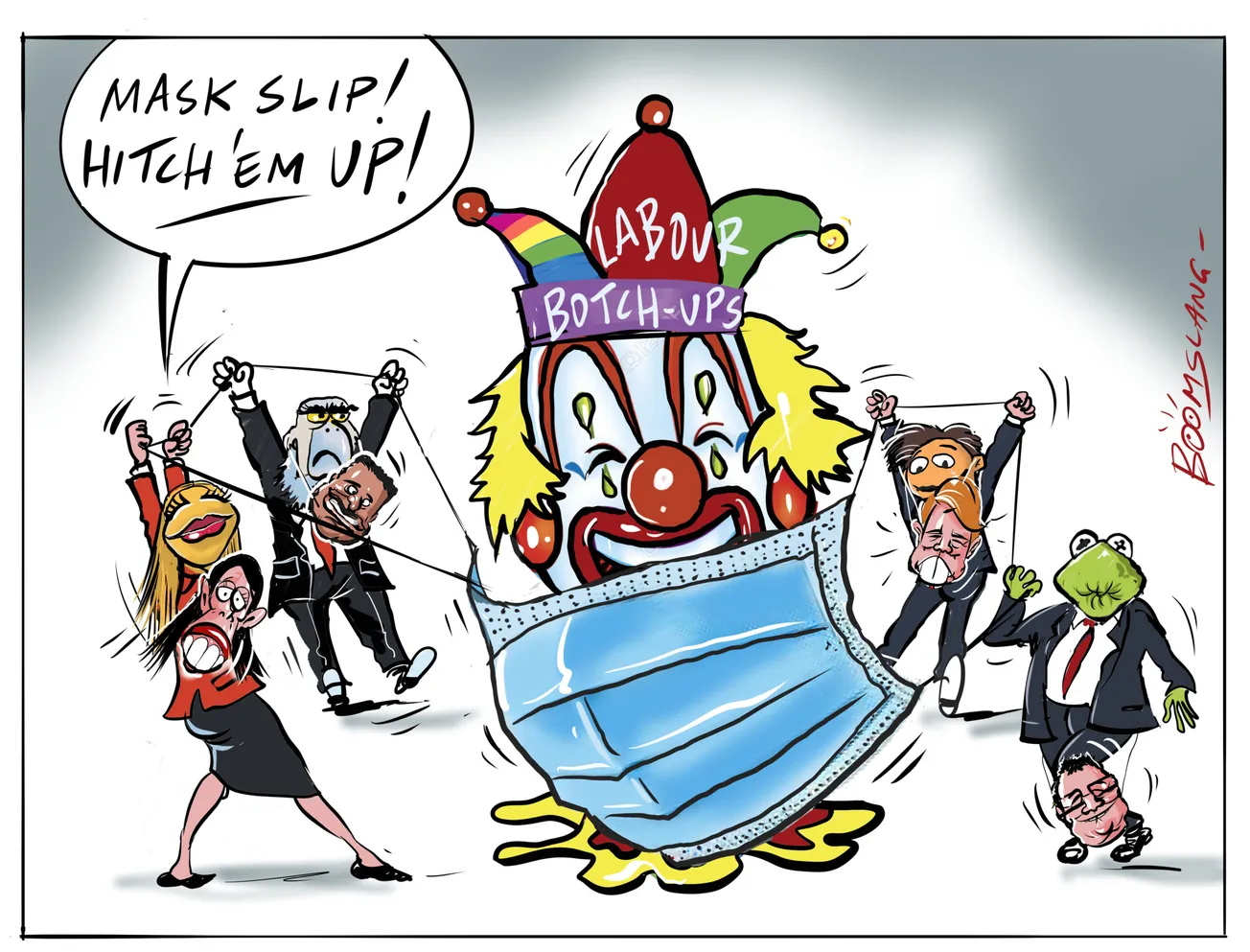Table of Contents
Chris Penk
First published by The BFD 28th June 2020
The BFD is serialising National MP Chris Penk’s book Flattening the Country by publishing an extract every day.
Just a PPE dream
As we’ve seen, the perception of widely available testing proved, on closer inspection, to be a mirage.
A similarly elusive image appeared on the horizon when health professionals and others went in search of personal protective equipment (PPE):
The Government has repeatedly said that there is plenty of PPE, and that people who need it should have access to it, but advocates say that message isn’t getting through, and DHBs are withholding protective gear like masks and gloves, in favour of sticking to the guidelines.
NZ Disability Support Network chief executive Dr Garth Bennie says the supply of PPE has been “extremely variable”, despite a fresh shipment of more than 40 million masks announced earlier this month.
This news item highlighted the plight of Alison Riseborough, a Kiwi living with muscular dystrophy and therefore particularly susceptible to Covid-19.
Like others who rely on close physical contact from carers for certain daily tasks, Alison was placed in a vulnerable position. As explained in the TVNZ item:
after the lockdown began, she became anxious about a stream of care workers coming into her home without masks.
“I’ve had associates with muscular dystrophy who have died from influenza so it’s not unheard of, this is a real fear,” she said.
But was this poor practice on the part of individuals or policy? Unfortunately, it was the latter:
Under the Ministry of Health’s guidelines, community carers are only required to wear masks and gloves when they’re working with suspected or confirmed Covid-19 patients.
Otherwise they don’t have to, even if their clients are elderly, disabled or have low immunity.
Given that asymptomatic carrying of the virus was well understood by this point, it’s strange (to put it kindly) that various government agencies didn’t exhibit any urgent inclination to remedy this situation.
It was even worse than that, however, in the case of health workers having PPE available but being actively discouraged from wearing it
As the New Zealand Herald reported, Auckland obstetrician and gynaecologist Sarah Corbett ended up voicing her concern about “distress” she continues to hear from colleagues:
“They are scared for themselves, their families and their patients.
Staff are being told off and pulled into meetings for ‘inappropriate use’ of PPE [personal protective equipment]. DHBs are actively discouraging staff from wearing face masks and ignoring advice from above.”
The threat to the safety of health sector workers was not only logical – given their proximity to the very members of the population most at risk – but also very real:
Director-General of Health Ashley Bloomfield revealed 64 healthcare workers were among the confirmed or probable of which the largest category was support or care workers with 20.
After the Ministry of Health was “lobbied vigorously” by union representatives, arguing that their members should be given PPE when dealing with clients and patients, it “eventually agreed to supply its DHBs to distribute to such workers if they felt they needed it”.
It’s worth looking briefly at where this grudging attitude towards the provision of PPE originated. This reflection by Joseph Judd was seemingly inspired by his observation, on a flight he’d recently undertaken between Auckland to China, on which every person onboard had worn masks.
Continuing the story in Judd’s own words:
When we arrived in Shanghai, all the airport staff were in full protective gear.
By contrast, as we walked through Auckland airport none of the customs or security staff wore masks or any other protective gear.
Nor were any of the staff on our domestic flight to Auckland.
Prompted to look into the situation here, Judd made an interesting discovery:
The Ministry of Health website says: “For most people in the community, face masks are not recommended. For people with symptoms of an acute respiratory infection, the World Health Organization recommends that there may be benefit in wearing a face mask.”
This is the basic advice of the WHO and the CDC in the US, which has the highest number of COVID-19 cases globally. […]
There are in fact dozens of studies that show masks are very effective in reducing transmission of viruses like COVID-19, along with other measures like social distancing and handwashing. […]
A study by Cambridge University showed that even simple homemade masks can be effective.
Not surprisingly, one of the country’s most senior watchdogs decided it was a subject worth investigating, as announced via email:
The Auditor-General has agreed with the Ministry of Health (the Ministry) to provide an independent review for the public and Parliament of the Ministry’s management of personal protective equipment (PPE) required for the COVID-19 response.
This review is keenly anticipated at time of writing. It is expected to cover such topics as “how the Ministry manages the stock of PPE, ensures an adequate supply, and distributes the PPE”, including “distribution to district health boards and others, and controls over the stock levels”.
The promise of the Auditor-General to report back to the nation on how the Ministry of Health is attempting to rise to PPE “challenges” should result in some interesting reflections.
Sources:
- Email from Office of Auditor-General dated 21 April 2020 to to undisclosed recipients; “Auditor-General’s independent review of the management of personal protective equipment”
- nzherald.co.nz/nz/news/article.cfm?c_id=1&objectid=12322537
- nzherald.co.nz/nz/news/article.cfm?c_id=1&objectid=12323595 interest.co.nz/opinion/104418/kiwi-joseph-judd-says-there%E2%80%99s-enough-evidence-available-warrant-urgent-review
- tvnz.co.nz/one-news/new-zealand/were-not-getting-masks-gloves-because-ppe-confusion-say-disability-support-workers-v1









